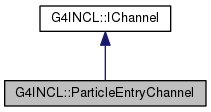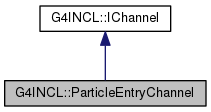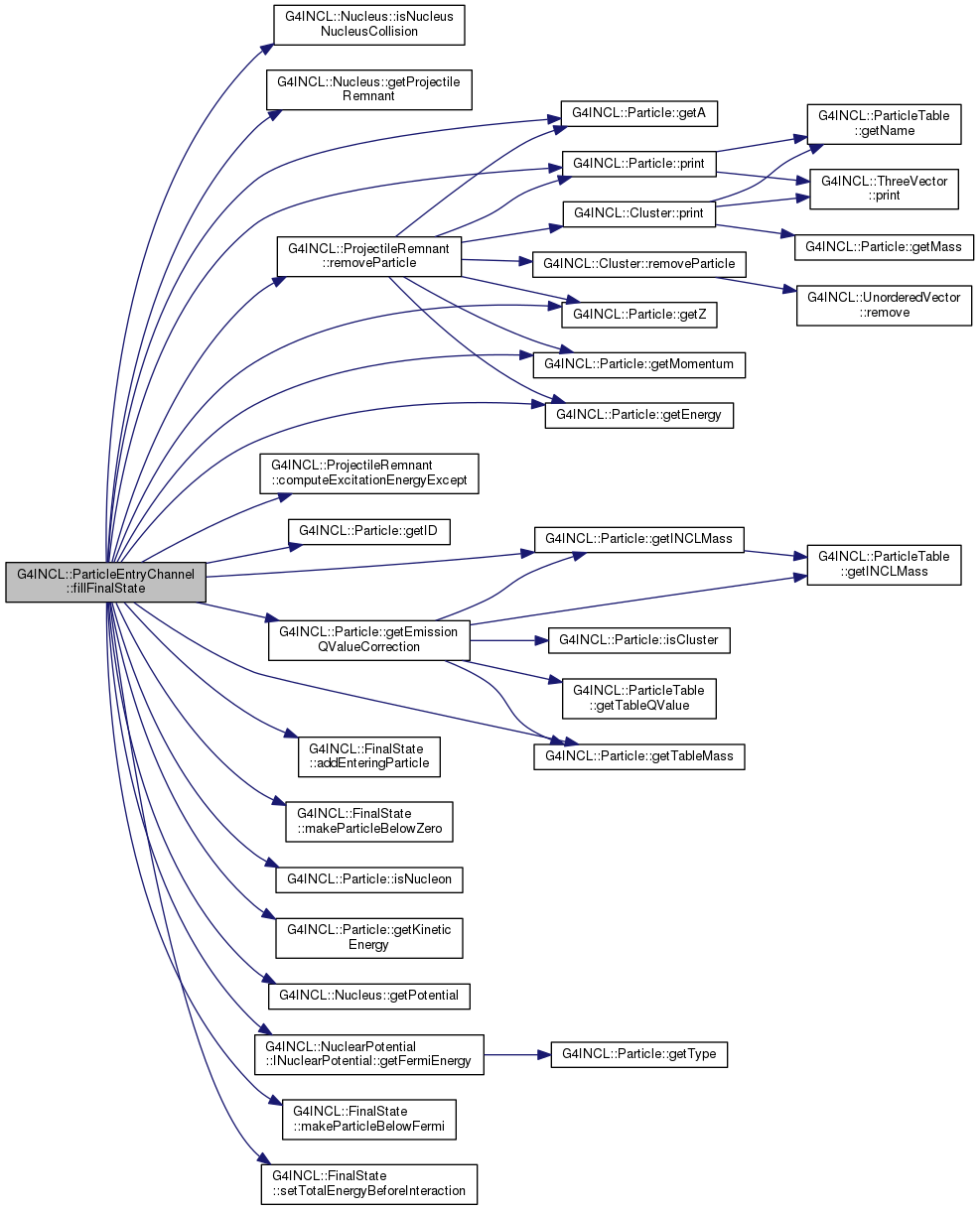119 const G4double theProjectileExcitationEnergy =
120 (projectileRemnant->getA()-theParticle->
getA()>1) ?
121 (projectileRemnant->computeExcitationEnergyExcept(theParticle->
getID())) :
127 const G4double theProjectileEffectiveMass =
129 + theProjectileExcitationEnergy;
130 const ThreeVector &theProjectileMomentum = projectileRemnant->getMomentum() - theParticle->
getMomentum();
131 const G4double theProjectileEnergy = std::sqrt(theProjectileMomentum.mag2() + theProjectileEffectiveMass*theProjectileEffectiveMass);
132 const G4double theProjectileCorrection = theProjectileEnergy - (projectileRemnant->getEnergy() - theParticle->
getEnergy());
134 theNucleus->
getA() + theParticle->
getA(),
135 theNucleus->
getZ() + theParticle->
getZ())
137 + theProjectileCorrection;
141 projectileRemnant->removeParticle(theParticle, theProjectileCorrection);
147 INCL_DEBUG(
"The following Particle enters with correction " << theCorrection <<
'\n'
148 << theParticle->
print() <<
'\n');
152 G4bool success = particleEnters(theCorrection);
153 fs->addEnteringParticle(theParticle);
156 fs->makeParticleBelowZero();
161 fs->makeParticleBelowFermi();
164 fs->setTotalEnergyBeforeInteraction(energyBefore);
G4int getA() const
Returns the baryon number.
G4bool isNucleusNucleusCollision() const
Is it a nucleus-nucleus collision?
const G4INCL::ThreeVector & getMomentum() const
std::string print() const
G4double getEnergy() const
G4double getINCLMass() const
Get the INCL particle mass.
G4double getFermiEnergy(const Particle *const p) const
Return the Fermi energy for a particle.
G4int getZ() const
Returns the charge number.
NuclearPotential::INuclearPotential const * getPotential() const
Getter for thePotential.
G4ThreadLocal NuclearMassFn getTableMass
Static pointer to the mass function for nuclei.
virtual G4double getTableMass() const
Get the tabulated particle mass.
ProjectileRemnant * getProjectileRemnant() const
Get the projectile remnant.
G4double getKineticEnergy() const
Get the particle kinetic energy.
G4double getEmissionQValueCorrection(const G4int AParent, const G4int ZParent) const
Computes correction on the emission Q-value.


 Public Member Functions inherited from G4INCL::IChannel
Public Member Functions inherited from G4INCL::IChannel